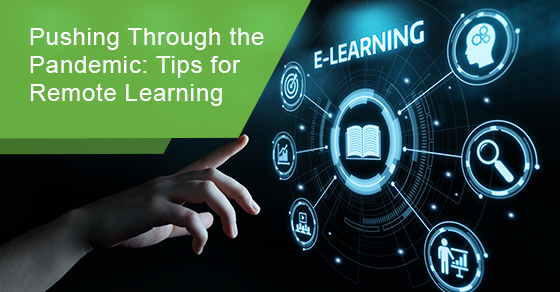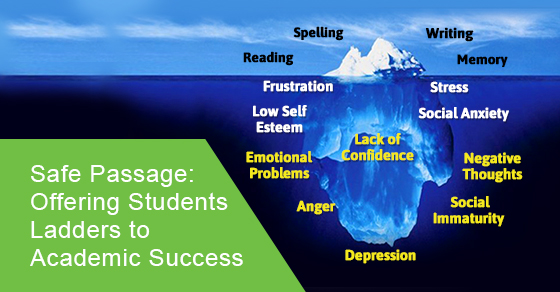On again, off again—our heads have been spinning as the province moves back and forth between remote and in-person learning to maintain public health. In addition to the strain these fluctuations put on parents, education during the pandemic has been leaving large groups of kids behind, especially students with disabilities.
Successful online learning requires organization, time management, self-direction, and self-regulation. Students who are weak in these areas or require more time to process information are rapidly losing ground. These students need to be able to stay present and engaged, transition effectively, move around, understand instructions, be able to ask questions without embarrassment, and avoid distractions. Research shows that tutoring is an effective solution for students with ADHD, learning disabilities, and autism spectrum disorders, but not everyone can afford a tutor. What’s the solution? Well, there are tried and true tips and tactics that can help these children succeed when they cannot receive in-person instruction.
How Teachers Can Help
Parents supporting students who struggle in a remote environment can take steps to help them feel less overwhelmed. That begins with asking the teacher if the lessons can be recorded and shared with students. Lessons require sustained focus and mental effort, and the opportunity to review them is helpful. Request a syllabus from the teacher and confirm how and when extra help will be made available. Ask for multi-step instructions to be provided in writing, extra time to complete work, and for teacher-prepared guided notes (handouts that provide students with background information and standard cues with specific spaces to record key facts, concepts, and/or relationships during the lesson). Request that teachers focus on quality over quantity when considering assignments and homework to avoid overwhelming students. Have them send information in an electronic format that is accessible and can be read by assistive technology. As a back-up to live instruction, check out free learning sites such as No Fear Shakespeare on SparkNotes, Quizlet, Kahn Academy, Crash Course, Crash Course Kids, and IDÉLLO (for French immersion) that offer supplementary information and materials review.
Strategies for Parents
Co-create a physical learning space with your child that is quiet and distraction-free (no phone or television allowed). Help them tackle projects in the morning to take advantage of the body’s high glucose levels. Show them how to “chunk” assignments up into manageable components and time-block everything into a calendar that’s in front of them as they work. Maintain routine and structure, setting phone reminders for due dates. If your student is restless, buy some fidget toys to improve concentration. Are they sensitive to sounds? Invest in a white-noise machine or play soothing background music without lyrics. If a student has difficulty with reading or writing, get them using Read and Write for Google (and Google Docs, which automatically saves their work and provides access to speech-to-text support). Plan out healthy and fun snack stations and allow for brain and body breaks that are too boring to be distracting, such as a short stretching routine, a brief meditation session, or three minutes of sunshine. Set hourly and daily goals for task completion and consider using a time management strategy (such as the Pomodoro Technique). Movement generates dopamine in the brain, which increases focus, so encourage outside play and activities with other children. If you’re working as well, try sitting beside your child and doing it together.
A Silver Lining
Parents struggle with the strain this new role puts on their relationship with their children, so try doing less telling and ask more open-ended questions, such as “what time do you want to schedule for doing your homework?” Be flexible and open to responding to their needs. Avoid conflict to increase productivity. If you’re trying to meet your own deadlines, getting their buy-in through the co-creation of schedules will be helpful.
If you need more help, explore tutoring, or tap a family friend in university, a retired teacher, or a talented neighbour. And remember to maintain perspective. Your children are becoming more tech-savvy, increasing their learning independence, understanding how to structure their day better, gaining some self-regulation skills, and enjoying closer family bonds. The pandemic won’t last forever, but these lessons may be helpful throughout a student’s life.



